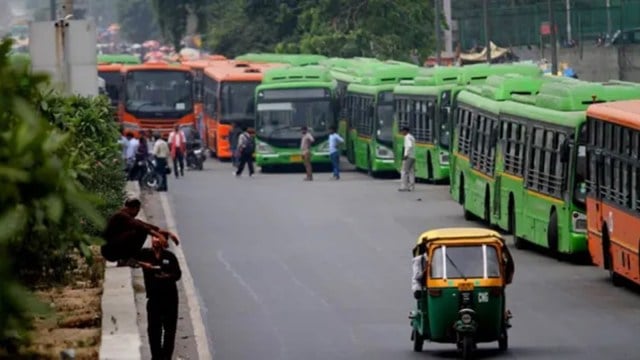Same parking fee for pvt and govt buses among slew of changes in works at ISBTs
The decision to enforce these changes, as per officials, was taken at a high-level meeting chaired by Lieutenant Governor Vinai Kumar Saxena, which was attended by Transport Minister Kailash Gahlot, and Chief Secretary Dharmendra, among others. Saxena had earlier inspected the ISBT Kashmere Gate on August 31.
 The difference between government and private buses, poor management of parking bays, bus staff using terminals as resting places, and systemic issues like staggered circulation due to extended turnaround time (File Photo)
The difference between government and private buses, poor management of parking bays, bus staff using terminals as resting places, and systemic issues like staggered circulation due to extended turnaround time (File Photo)Same parking fees for private and government buses, fixed time slots for the use of bus bay, and use of FASTag for tracking the vehicles — a slew of changes are expected to be enforced by the Delhi Transport Department at the interstate bus terminals to increase efficiency and reduce traffic snarls, officials have said.
At the three operational interstate bus terminals (ISBTs) of the Capital — Kashmere Gate, Anand Vihar, and Sarai Kale Khan — private buses are charged a higher parking fee at present. Due to this, it has been observed a large number of private buses — trying to evade the fee — can be seen parked outside the terminals to pick up passengers, which eventually leads to snarls.
The decision to enforce these changes, as per officials, was taken at a high-level meeting chaired by Lieutenant Governor Vinai Kumar Saxena, which was attended by Transport Minister Kailash Gahlot, and Chief Secretary Dharmendra, among others. Saxena had earlier inspected the ISBT Kashmere Gate on August 31.
According to the L-G Office, he also suggested reducing parking time to achieve a higher turnaround. Saxena also directed that only buses with Fastag be allowed to enter the terminals to ensure tracking and minimise human intervention.
“Once notified, the new norms will not only ensure efficiency in the functioning and operation of the ISBTs but also enable the facility to function to its optimum capacity of 3,000 buses per day as against 1,700,” an official said.
The difference between government and private buses, poor management of parking bays, bus staff using terminals as resting places, and systemic issues like staggered circulation due to extended turnaround time, which in turn leads to traffic gridlock are some of the challenges that these bus terminals are said to be facing.
On the plans of a fixed time slot at such bus terminals, an official said, “It will reduce the wait time for passengers and also ensure that buses move at a faster pace…Buses will be provided with a fixed parking time slot of 25 minutes at a fixed rate. Thereafter, for a delay of every 5 minutes, they will be charged proportionately extra. Enforcement and Implementation of the same will be ensured with the Fastags.”







